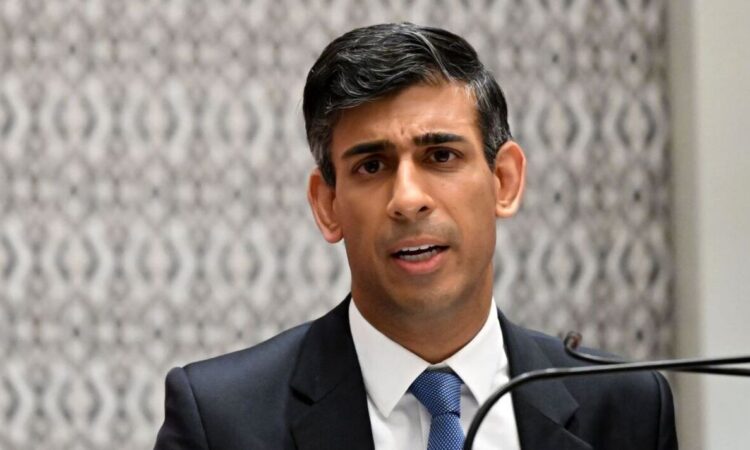
The Prime Minister held emergency talks yesterday with a breakaway group of allies at the G20 after a missile struck a Polish village.
Mr Sunak was woken at 5am to be briefed on the strike, which was initially blamed on Russia. But early findings suggest the rocket was fired by Ukrainian forces at an incoming Russian missile.
Mr Sunak spoke to Polish President Andrzej Duda to offer his “wholehearted support” and assurance that the UK stands steadfastly behind him.
The Prime Minister would not be drawn on who was responsible for the strike but said “none of this would be happening if it weren’t for Russia’s invasion of Ukraine”.
“This is the cruel and unrelenting reality of Putin’s war,” he added.
“As long as it goes on it poses a threat to our security and that of our allies. And as long as it goes on, it will continue to devastate the global economy.”
Mr Sunak said he “directly confronted” Putin’s right hand man, foreign minister Sergey Lavrov, at the G20 summit with the “illegality and brutality” of his country’s war in Ukraine.
“Barely twelve hours later, more than 80 Russian missiles rained down on western Ukraine, killing civilians and destroying civilian infrastructure,” he added.
Lavrov scarpered from the summit before the close as a series of emergency meetings were held by allies to discuss the strike on Poland.
Mr Sunak joined Nato and G7 leaders to discuss their response to the assault amid initial fears it was an escalation from Russia that could drag the West into war.
The meeting, called by the US President, also included French President Emmanuel Macron, German Chancellor Olaf Scholz, Japan’s premier Fumio Kishida and Canada’s Justin Trudeau.
They pledged to offer their “full support” for Poland’s investigation into the incident, with preliminary assessments from US intelligence later suggesting the missile was fired by Ukrainian forces at an incoming Russian one.
Downing Street said afterwards that the leaders highlighted that Russia’s invasion of Ukraine is “directly responsible for precipitating global economic issues”.
A No 10 spokesperson said: “The leaders agreed on the national and international importance of the strong UK-US relationship, particularly given the challenging economic times the world is currently facing.
“The Prime Minister and President Biden underscored that the actions of President Putin and his regime are directly responsible for precipitating global economic issues including rising inflation. Maintaining international pressure to ensure Putin fails in Ukraine is in everyone’s interest.
“The leaders agreed to work together, and with allies, to address the economic consequences of Putin’s brutality. This includes action to protect the most vulnerable in our countries and around the world, and efforts to secure our long-term energy supply.”
The Prime Minister and Canadian counterpart Justin Trudeau later held a call with Ukrainian president Volodymyr Zelensky to discuss the strike.
At the closing press conference of the summit, Mr Sunak said the economic challenges facing the world are driven by Russia’s war in Ukraine.
He said: “The persistent threat to our security and global asphyxiation has been driven by the actions of the one man unwilling to be at this summit – Vladimir Putin. There isn’t a single person in the world who has not felt the impact of Putin’s war.”
Mr Sunak said they were determined to establish what happened with the missile that hit Poland.
“What we agreed this morning is that it is important to establish the facts and this is exactly what is happening as we speak. We will get to the bottom of what happened,” he said.
The crisis over the incident in Poland led to G20 leaders tearing up their carefully organised schedules.
Mr Sunak’s controversial meeting with China’s President Xi Jinping was cancelled, but Downing Street refused to say at whose request.
The Prime Minister had been expected to use the meeting to call for a “frank and constructive relationship” with Beijing while also raising its human rights abuses, Downing Street said.
But Mr Sunak had been warned by critics that he could be seen as “weak” for “drifting into appeasement with China”, after he appeared to soften his rhetoric to declare the country a “systemic challenge” rather than a “threat”.






